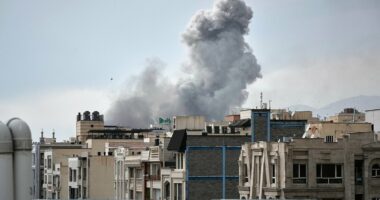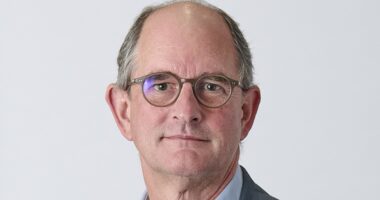Share this @internewscast.com
Unlock the Editor’s Digest for free
Tokyo and Manila have discussed deploying Japanese forces in the Philippines, as the countries near agreement on several security pacts aimed at boosting regional deterrence against China.
Jose Manuel Romualdez, the Philippines ambassador to the US, said the Manila and Tokyo governments were close to signing a “reciprocal access agreement” that would also let their militaries train and exercise in each other’s countries.
Romualdez said the two countries had discussed deployment of the troops on a rotational basis — an arrangement similar to that under which the US maintains military forces in the Philippines despite the country’s constitutional prohibition of permanent deployments.
“That’s something that we’ve already discussed in the past and we will continue to look at that again as part of our co-operation between our countries,” Romualdez said.
News of the discussions will send a sharp message to China about how the US and its allies are increasingly worried about its military activity in the region — both around Taiwan and in other areas of the South China Sea.
Romualdez was speaking on Wednesday ahead of a landmark US-Japan-Philippines trilateral meeting that US President Joe Biden will host next week with President Ferdinand Marcos Jr and Japan’s Prime Minister Fumio Kishida.
The ambassador said Manila was “considering all of the aspects of our relationship with Japan and certainly that’s one of them”. He expected the two countries to conclude the RAA shortly after the trilateral summit, which will be held on April 12 in Washington.
Marcos will also hold a bilateral meeting with Biden a day after the US and Japanese leaders have a summit that will include a high-profile state dinner at the White House.
Deployment of Japanese troops in south-east Asia would mark a major development for Tokyo and Manila, which have significantly strengthened co-operation with the US to counter China.
Christopher Johnstone, a Japan expert at the Center for Strategic and International Studies think-tank, said: “If it comes to fruition, a presence of Japanese forces in the Philippines would send two powerful messages to China: that a regional, multilateral security architecture is forming in response to Beijing’s revisionist behaviour; and that Japan has become an accepted security provider in south-east Asia. Both developments would have been unthinkable just a few years ago.”
Japan has over the past couple of years significantly boosted its defence posture, including sharply increasing its defence spending and buying US-made Tomahawk cruise missiles with a range capable of hitting targets in China.
The Financial Times reported recently that Biden and Kishida would next week reveal the biggest upgrade to the US-Japan military alliance in more than six decades.
The US has expressed increasing concern about aggressive Chinese activity towards Filipino vessels at the Second Thomas Shoal, a submerged reef in the South China Sea that has become a dangerous flashpoint again in recent months.
Washington and Manila have both strongly criticised China for dangerous activity — including targeting vessels with water cannons — intended to make it harder for the Philippines to resupply troops based on a ship known as the Sierra Madre that has been lodged on the reef for 25 years.
Any attack on the ship, which was deliberately marooned on the contested reef in 1999, could trigger the US-Philippines mutual defence treaty.
Several people familiar with discussions inside the Biden administration said officials were increasingly worried that an incident at the reef could trigger a wider confrontation.
Speaking ahead of Biden’s call on Tuesday with Xi Jinping, president of China, one senior US official said the administration was more and more concerned Chinese activity around the Second Thomas Shoal “could lead us closer to unintended consequences”.
Romualdez said the US, Philippines and Japan were also close to reaching an agreement that would lead to their navies engaging in joint patrols in the South China Sea. He said they were finalising the details, including on the frequency of the patrols and where they would be conducted.
The ambassador added the US and Philippines were also “very close” to reaching a military-intelligence sharing deal known as the General Security of Military Information Agreement. “I’m hoping that if it doesn’t happen during this summit, it will happen shortly after,” he said.
The Japanese embassy in Washington did not immediately reply to a request for comment.





